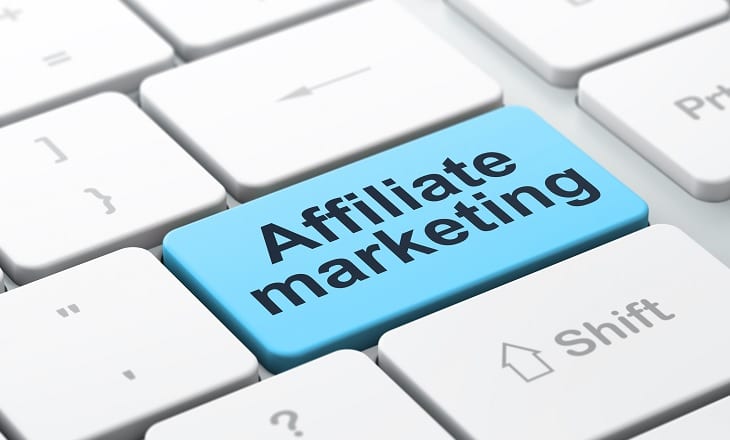Cyprus financial regulator CySEC has issued a circular to all licensed CIFs in the country, outlining the rules under which CIFs (mainly Forex, CFD and Binary Options brokers) can operate using third party affiliates.
Over the past two years CySEC has fined or even suspended the licenses of certain brokers, due to actions taken by these third party ‘affiliates’ on behalf of brokers. Affiliates have been known to be much more aggressive than brokers themselves in marketing and selling to retail clients, sometimes writing and saying just about anything in order to ‘make the sale’.
In addition to outlining the (not-so-really-new) rules governing the broker-affiliate relationship, CySEC also stated that it intends to publish on its website a warning list with the website addresses of the affiliates that are operating outside the parameters of the Law, enabling all CIFs to be informed of such malpractice and to cease and/or avoid any cooperation with them. Details of these affiliates’ representatives (physical persons) will also be included in the warning list – if CySEC can figure out who they are, never an easy task.
In addition to setting new rules for FX and CFD brokerage, such as a (soft) 50x leverage cap and a ban on client bonus payments, CySEC has also been taking measures to clean up the way the industry engages with clients – such as requiring all client facing activity to occur physically in Cyprus, or another EU entity where the CIF has properly passported its license.
The full text of the CySEC circular reads as follows:
From : Cyprus Investment Firms
To : Cyprus Securities and Exchange Commission
Date : 26 June 2017
Name : C217
Subject : Use of Affiliates
The Cyprus Securities and Exchange Commission (‘the CySEC’) wishes, with this circular, to inform the Cyprus Investment Firms (‘the CIFs’) about the following:
1. CIFs often engage with third parties across multiple jurisdictions to promote the brand of the CIF online, use their website as a portal for displaying promotional and advertising content, host marketing material and direct web-traffic to the authorised CIF’s website, increase the online profile of the CIF through search engine optimisation and perform any other similar (with the abovementioned) activity (‘the Affiliates’).
2. CIFs should exercise due skill, care and diligence when entering into, managing or terminating any arrangement with an Affiliate. The provisions of Part V (Outsourcing) of Directive DI144-2007-01 of 2012 are fully applied.
3. CIFs, before entering into an agreement with an Affiliate, should ensure that the Affiliate has obtained any authorisation required or is registered in his jurisdiction to perform such activity, if required.
4. CIFs should ensure that the content of the marketing material is clear, fair and not misleading in accordance with the requirements of article 36 of the Investment Services and Activities and Regulated Markets Law of 2007 (‘the Law’) and that the material either is prepared by the CIF itself and disseminated to Affiliates, or is subject to pre- approval and ongoing monitoring by the CIF, if a third party is engaging to do this.
5. CIFs should ensure that the oversight arrangements in place between themselves and Affiliates are sufficiently captured within the CIF’s internal control framework and the Affiliates are closely monitored.
6. CIFs are encouraged to either perform the activities described in paragraph 1 internally or cooperate with the absolute minimum number of Affiliates for the most efficient monitoring of their activities.
7. In the context of efficient monitoring, CIFs that continue to use Affiliates are encouraged to develop/buy a marketing intelligence tool that enables them to gather all the Affiliates’ digital media data that relates to the CIF and ensure that these are in line, at all times, with the provisions of article 36 of the Law.
8. In case an Affiliate is acting outside the scope of the signed agreement, the CIF should cease the cooperation and take appropriate measures against the Affiliate, informing, at the same time, its clientele through its website, for this termination.
9. In addition, the CIF should disclose the incident to CySEC, including the address of the Affiliate’s website and details of the Affiliate’s identity [in case the Affiliate is a legal person, details of the representatives (physical persons) of the Affiliate that signed the agreement should be disclosed].
CySEC intends to publish on its website a warning list with the website addresses of the Affiliates that are operating outside the parameters provided by the Law, CySEC’s circulars and acceptable business practices, enabling all CIFs to be informed of such malpractice and to cease/avoid any cooperation with them. Details of the Affiliates’ representatives (physical persons) will also be included in the warning list.
Yours sincerely,
Demetra Kalogerou
Chairman of the Cyprus Securities and Exchange Commission
